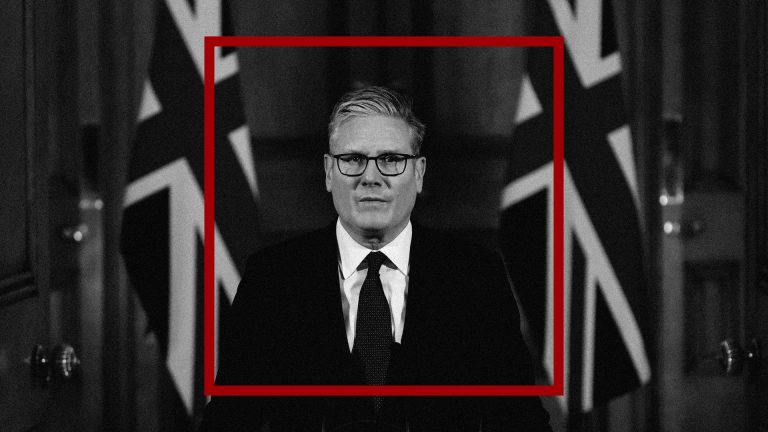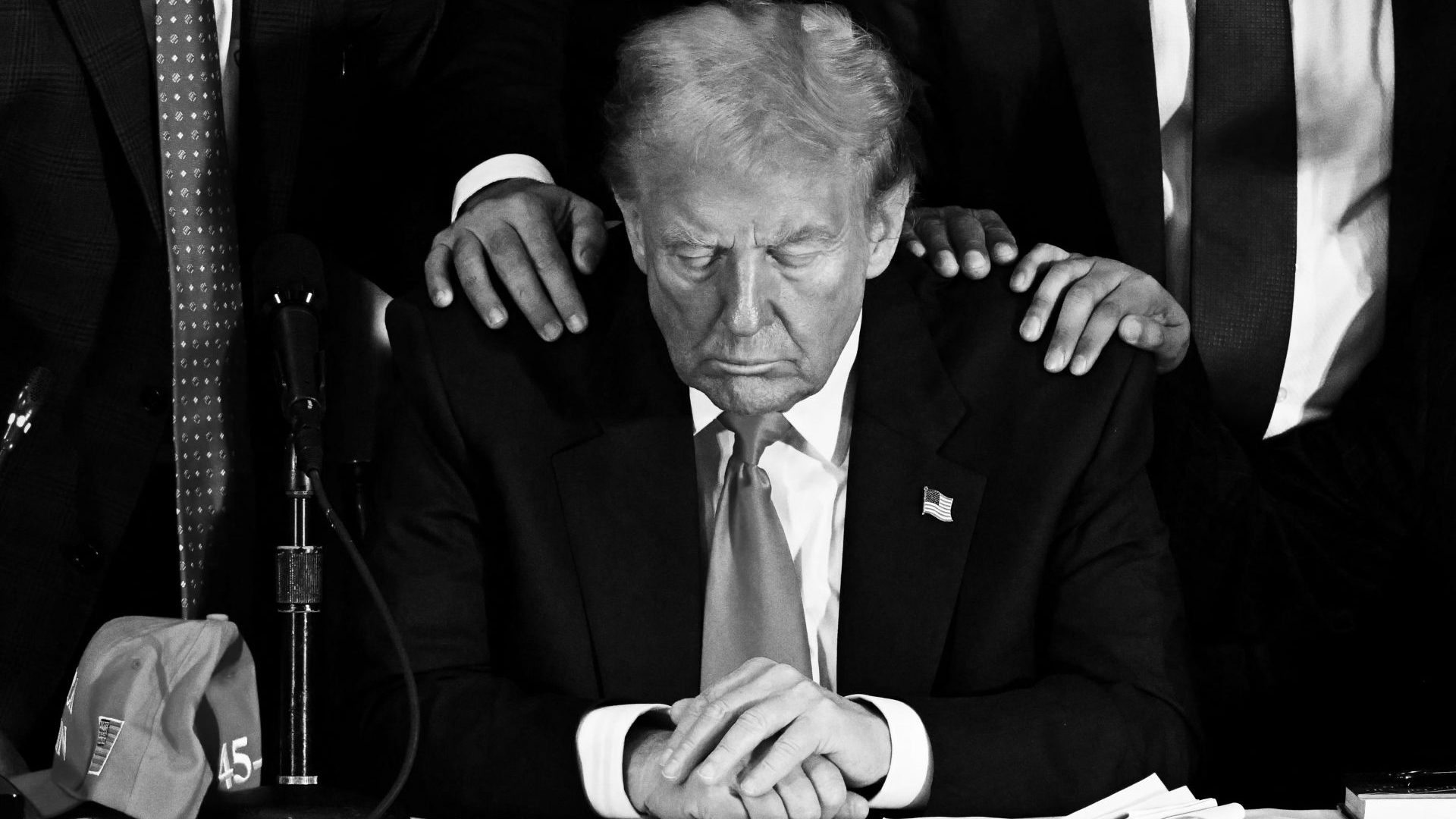By popular demand – oh, OK, the editor thought it would be interesting – here come my impressions of Curtis Yarvin, after a 45-minute conversation at an ideas festival in London.
He was billed as “the philosopher behind JD Vance”, and certainly it is the interest shown in him by the US vice-president, MAGA force of nature Steve Bannon, and anti-democratic tech billionaire Peter Thiel that has made Yarvin of curiosity value to anyone trying to work out the American right. That, I imagine, is why he was invited to the “How the Light Gets In” gathering on September 21, and why I was asked to talk to him.
His big idea, insofar as he has one, is that liberal democracy has failed, and monarchy should replace it. Not a King Charles-style ceremonial monarchy, but more on the lines of Henry VIII – “a spectacular period in your history” – or his oft-mentioned heroes, Elizabeth I and Frederick the Great, also one of Hitler’s heroes. Any CEO of a major corporation, he argues, could do a better job of running our countries than those who do.
It struck me that Yarvin had next to no idea how we would actually get from the democracies we have now, however flawed, to the monarchy he thinks would be better. It struck me, too, that it didn’t really bother him. He was just happy that what seemed like deeply wacky ideas when he first started ventilating them on his blog struck a chord with some big cheeses in Trumpland.
A one-time computer analyst whose first contribution to our discussion was to make a joke about being leader of “the nerd Reich”, he strikes me as someone who can’t quite believe his luck that there are people in real positions of power who take him seriously.
I confess I struggled to do so myself. He has a fairly good collection of quotes up his sleeve, Aristotle one minute, Mandy Rice-Davies the next, with Philip Larkin and Castro in between. And he is smart enough not to come over as a total Trump apologist – he doesn’t like the president’s blatant mixing of private business and public office, for example, and thought the threats to annexe Greenland were silly “because Denmark is a satellite state already”.
A serious point, glibly made. There was a lot of that, more glib than serious.

Our event took place before Donald Trump’s speech to the United Nations, in which he revisited his obsessive loathing of Sadiq Khan, announcing to the world that our brown-skinned Muslim mayor was introducing “sharia law” to the UK’s capital city.
London is beyond doubt one of the greatest cities in the world, yet the MAGA crowd’s goal appears to be to portray it as an uninhabitable hellhole, where to walk down the street is to risk death. This from a country where last year there were more than 16,000 gun deaths (not counting suicides), compared with two dozen in Britain; where by August this year, according to the Gun Violence Archive, there have been 308 mass shootings, resulting in 300 fatalities and 1,353 injuries; 109 incidents of gunfire in schools, causing 33 deaths and 106 injuries.
Yarvin asked me if I felt safe in London. I said yes. “Everywhere in London?” Yes. And I was pleased that one of the loudest rounds of applause followed my defence of Sadiq Khan as “an excellent mayor”.
Even by Trump’s standards, the sharia law jibe was pretty nutsville, and there was plenty more nutsville stuff in a speech that went more than half an hour over its allotted time, spraying around threats and boasts, falsehoods and policy nonsense galore.
I spoke to a head of government who was in the room as Trump spoke. “We were all just sitting there, thinking ‘how the hell do we deal with this guy?’” When Trump spoke there in his first term, he went on, they found it at times amusing. This time, he said, “it just felt very, very dark.”
Suggested Reading


Smash the populists, Keir
So farewell Menzies Campbell, known to all as “Ming”, and a lovely, lovely man. I was a political journalist when he was elected to parliament in 1987, and he was high on my list of new MPs to cultivate, on account of his having been an Olympic sprinter.
I have always been hopelessly impressed by sporting achievement, and Ming’s were considerable. He competed in the Tokyo Olympics of 1964, captained Scotland in the 1966 Commonwealth Games in Jamaica, held the British 100-metre record from 1967-74, and in a discipline dominated by black men, was known as “the fastest white man on the planet”. Twice he ran 100 metres in 10.2 seconds, including against, before his switch to American football, a certain OJ Simpson, who would later become famous for much more than sport.
Ming became leader of the Liberal Democrats after Charles Kennedy, whose developing alcoholism, which would eventually kill him, led him to stand down in 2006. Ming struggled to make his mark, and although only in his mid-60s when he took over, with a still youthful Tony Blair prime minister at the time, and an even more youthful David Cameron as leader of the Tories, ageism played a part in the steady drumbeat of discontent about his leadership.
By the time Gordon Brown became prime minister a year into Ming’s leadership, once it had become clear that the PM would not be calling a general election, Ming bowed to what had become almost intolerable pressure and made way for Nick Clegg, who would lead the Lib Dems into government.
Clegg’s tribute on the news of Ming’s death was deep and heartfelt.
It is impossible to recall Ming’s life without reference to his wife, Elspeth, a huge character who pre-deceased him two years ago. He proposed to her within two weeks of meeting, and they were a real couple.
Aware of my distaste for the honours system, she would delight in telling me she was entitled to call herself “Lady Lady Lady Campbell”, her first husband having been a baronet, then Ming having been first knighted and then made a peer.
Perhaps my favourite personal memory of Ming, from the mid-90s, was of the time he came into my office in the Commons brandishing an envelope, inside which was a deeply personal letter and a postcard to which was glued the front of a pair of black lace knickers.
At the time, I had a stalker, the actress Nicola Pagett, who would later write a book about her obsession, Diamonds Behind My Eyes. We never met, but the letters recorded the passionate love affair she imagined we were having.
She wrote to me most days, sometimes several times, and her handwriting was often spidery. So on this occasion, the Commons postal team clearly misread “Alastair” as “Menzies” and the letter marked “personal and private” was sent to him.
“I think this was meant for you,” he said with a smile, popping the postcard with the knickers on the corner of my desk, and handing me the envelope and the letter within, which recorded the night of passion I had seemingly enjoyed with Nicola Pagett. Indeed, scribbled on the corner of the postcard were the words: “To remind you of a wonderful night.”
“Ming, Ming,” I said, as he headed to the door, smiling. “I need to explain…”
“Don’t worry, old boy,” he replied. “We’re both men of the world… your secret is safe with me.”




